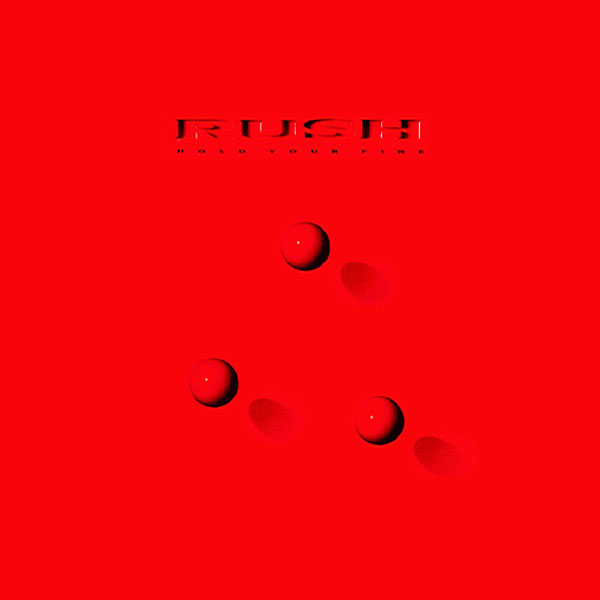Rush Burns Intensely On Hold Your Fire
By Greg Quill, Toronto Star, September 4, 1987, transcribed by pwrwindows

Unlike any popular group of the 1970s still lucky enough to retain an enthusiastic international audience a decade later, Toronto's Rush continues to mature and evolve, but at a rate and within dimensions that encourage its audience to adapt and follow.
Moreover, while most rock acts in the 1980s seem obsessed with business and technology, with fantasy and escape or with sociological and political issues, Rush grows ever inward, ever more willing to explore the intricacies of human nature.
Hold Your Fire is by far the most personal, most likeable album Rush has made. It simply draws you in, as if into an embrace, with warmth, logic, sweet words and entrancing music. Where once lyricist/drummer Neil Peart pondered, waffled, pontificated, he now offers hope and solace - no solutions to the storms of the spirit, mind you, just courage and empathy.
And he's never written so convincingly as in "Time Stand Still," the album's most outstanding cut, and "Second Nature." The former aches for another snatch at lost opportunities, a way of suspending our lives long enough to savor small beauties, heal troubling wounds, gather an ounce of extra strength; the latter appeals flatly, almost legally, for an end to intolerance, for recognition of our common humanity - not for perfect harmony, just for more closeness.
These ideas, rendered from singer/bassist Geddy Lee's heart with the same power and conviction they'd have if they were his own, are enhanced by some wonderfully inventive music - Alex Lifeson's ringing guitar arpeggios, Peart's and Lee's intricate rhythm patterns and tasteful, almost organic synthesizer arrangements.
While this music bears no relation to the primitive hard rock for which Rush first became famous, it burns intensely, rising and falling like flames in a furnace, fuelled occasionally (on "Lock And Key," for example) by Lifeson's erratic, edgy solos, and elsewhere (on "Mission", an apologia for artists cursed and blessed by their own obsessions, and "Tai Shan," a paean to China's age and wisdom) by percussive starbursts and airy, eerie voices.
Produced in Britain, Montserrat, Toronto and France by the band and Peter Collins, Hold Your Fire was released late this week with no fanfare and little notice. Like Toronto graphic designer Hugh Syme's brilliantly understated cover artwork (three fluid balls suspended over a background of fire-engine red), the music it enfolds insinuates, beckons, calms. Hold Your Fire is Rush's most completely realized work, a subtly gleaming gem.